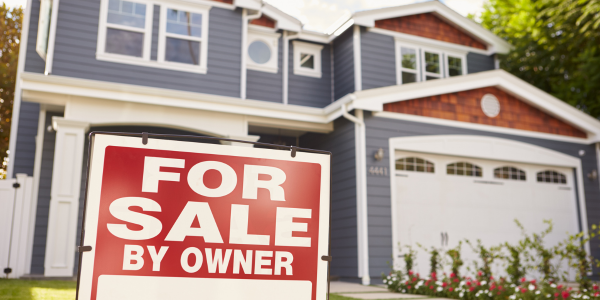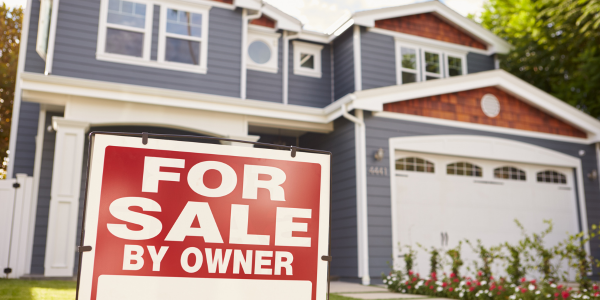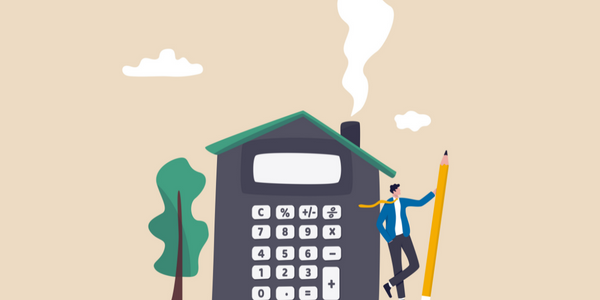
When it comes to investments, many people say it’s all about timing. While that’s good advice in theory, there’s simply no way to time the market if you’re purchasing a sizable investment like buying a house. In a perfect world, interest rates and prices would both be low—and this does happen, but not very frequently.

The real estate market saw a substantial price drop in 2007 as the Great Recession got underway. Home prices fell again in mid-2020 as uncertainty swirled around COVID. And that’s kind of it.
To be sure, there are always ebbs and flows in home prices. These are influenced by both macroeconomic factors like the economy and interest rates, as well as micro factors, such as the activity occurring in one neighborhood or city.
Interest rates, on the other hand, are influenced by macroeconomic factors and adjusted as the Fed sees fit. That’s the only governing body that knows for certain what will happen with interest rates, and even the Fed must make last-minute adjustments to its targeted rate based on other factors.
But that’s all okay, right? You’re going to give it a few years and, when there are lots of homes for sale and rates are low—boom—you’re going to pounce!
But what if that doesn’t happen? What if, instead of falling, mortgage rates go up? Inventory could also get tighter. And prices…well, they’re dictated by that market that no one can time.
All this is to say that market timing is technically possible, but while you’re waiting for both prices and rates to drop, someone else is snatching up your dream home.
The Cost of Waiting
It’s easy to think putting off a big financial decision like a home purchase is a smart move—and it can be. If you need to work on your credit, save for a down payment, or establish an emergency fund, then waiting sounds like a great move. However, if you’re drumming your fingers just waiting for the ideal housing market, then you might want to understand the true cost of waiting.
In this high-inflation environment, the costs of goods and services may continue to rise. Unfortunately, that could take a chunk out of your housing budget in the process. Paying more for other items leaves you with less money to put toward your down payment.
Remember, too, that a home is a product. Real estate is certainly not immune from price increases.
Now, increased prices have slowed a bit in some markets over the past year, but no one can say if this will continue. The problem is interest rates. If they decrease significantly, demand will likely pick back up and the nightmare house bidding wars that defined 2021 will start again. So no price relief there.
If interest rates increase, there may certainly be less competition in the market, but just like inflation, those rates will eat away at your housing budget. They’ll also add dollars—sometimes hundreds of dollars—to your monthly mortgage payments.
The Cost of Renting
Let’s step back for a minute and talk about your current housing situation. If you’re renting, you’re not only funding someone else’s investment (your landlord’s), but you’re also likely to get hit with annual rent increases.
So far, rents are up an average of 3.3% this year, according to NerdWallet, though there are some areas where they’ve increased much more than that. This includes Hartford, Connecticut. (7.3%), Buffalo, New York (6.3%), Chicago (6%), and Boston (5.8%).
One of the great things about buying a home is knowing that your monthly mortgage payment will never increase if you have a fixed-rate loan.
Here’s another great thing about mortgages: You can refinance them. It’s like hedging your bets. You can buy today to take advantage of lower housing prices and less competition, and then refinance anytime interest rates improve.
And interest rates will get better. The real estate market is cyclical, and this interest rate environment won’t last forever. When that will happen, however, is anyone’s guess.
Keep in mind that homes also tend to appreciate over time, even when you factor in some price drops here and there. The median price on a home sold in July was $406,700, according to the National Association of Realtors (NAR). That’s the highest price on record for July sales so far. And that’s when interest rates were at 7.3%!
Are You Ready to Buy a Home?
If you have all your ducks in a row but are waiting for a “better” time to buy a home, that time may be now. Refinancing is always an option, and you don’t want to get locked out of your dream home if rates or prices rise.
We’re happy to tell you more. Click here to connect with an APM Loan Advisor in your area to discuss your unique financial situation, as well as the current housing market.







